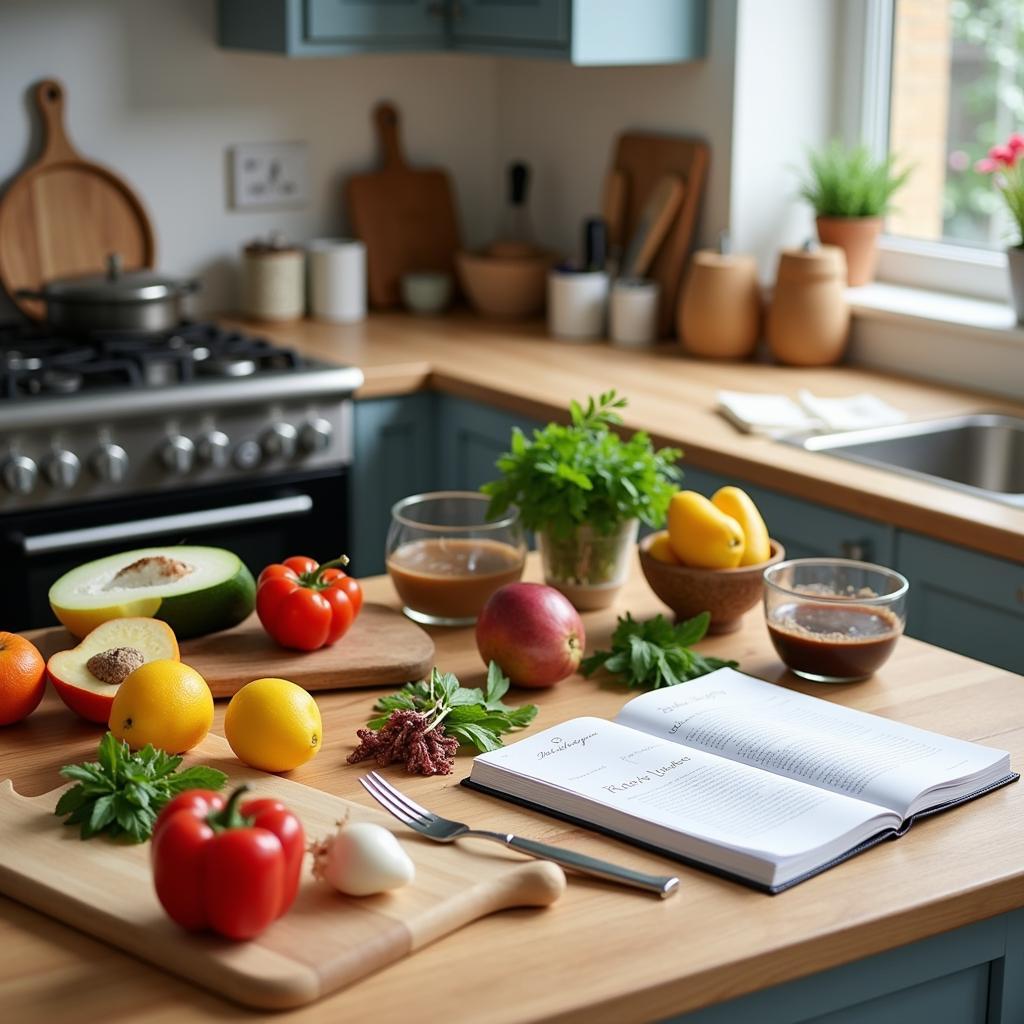When it comes to IELTS Speaking topics, food-related questions frequently appear across all three parts of the test. This topic allows candidates to demonstrate their vocabulary range and ability to express personal experiences effectively.

Part 1: Introduction and Interview Questions
Common questions examiners ask about cooking:
- Do you enjoy cooking?
- How often do you cook?
- What’s your favorite type of food to prepare?
- Where did you learn to cook?
Sample answer (Band 8-9):
“I absolutely adore cooking, especially on weekends. I picked up most of my cooking skills from my grandmother, who’s been a culinary inspiration to me. I particularly enjoy preparing traditional dishes as they allow me to stay connected with my cultural heritage.”
Part 2: Cue Card
Describe a dish you like to cook
You should say:
- What the dish is
- How you learned to cook it
- What ingredients are needed
- And explain why you enjoy cooking this dish
Similar to describe a dish you want to learn how to cook, here’s how to structure your response:
Sample Answer (Band 8-9):
“I’d like to talk about my signature dish – homemade pasta carbonara. I initially discovered this dish during my trip to Rome, and I was instantly captivated by its creamy texture and rich flavors.
The preparation process requires fresh eggs, pecorino romano cheese, guanciale (cured pork cheek), black pepper, and high-quality spaghetti. What fascinates me about this dish is how these simple ingredients transform into something extraordinary.
I perfected this recipe through countless attempts, drawing inspiration from describe a recent memorable family meal. The technical aspect of getting the egg sauce just right without scrambling it challenges me every time.
What makes this dish particularly special to me is how it brings people together. Similar to describe a favorite restaurant in your city, my carbonara has become a crowd favorite at family gatherings.”
Part 3: Discussion Questions
Q: How have cooking methods changed in recent years?
Sample Answer (Band 8-9):
“Modern cooking has undergone a significant transformation. With the advent of smart kitchen appliances and sous-vide cooking, we’ve seen a paradigm shift from traditional methods. However, there’s also been a resurgence of interest in ancient cooking techniques as people seek to reconnect with their culinary heritage.”
Q: What impact has social media had on cooking habits?
Sample Answer (Band 8-9):
“Social media has revolutionized how people approach cooking. Platforms like Instagram and TikTok have made cooking more accessible and engaging, while also fostering a global exchange of culinary knowledge. This has led to a democratization of gourmet cooking, making previously intimidating dishes more approachable.”
Key Vocabulary and Expressions
- Culinary expertise (n) /ˈkʌlɪnəri ɛksˈpɜːtiːz/ – professional cooking knowledge
- To perfect (v) /pəˈfɛkt/ – to make something as good as possible
- Signature dish (n) /ˈsɪɡnətʃə dɪʃ/ – a dish someone is known for making well
- Time-honored (adj) /taɪm ˈɒnəd/ – respected and valued for a long time
- To experiment with (v) /ɪkˈspɛrɪmənt wɪð/ – to try new methods or ideas
Examiner’s Tips
- Use specific cooking terminology to demonstrate vocabulary range
- Include personal anecdotes to make your response more engaging
- Structure your response clearly, especially in Part 2
- Practice describing cooking processes in a logical sequence
- When discussing changes in cooking methods, use appropriate linking words to show contrast and development
Remember that just like describe a time when you had to change your plans suddenly, being able to adapt your response while maintaining fluency is crucial for success in the IELTS Speaking test.